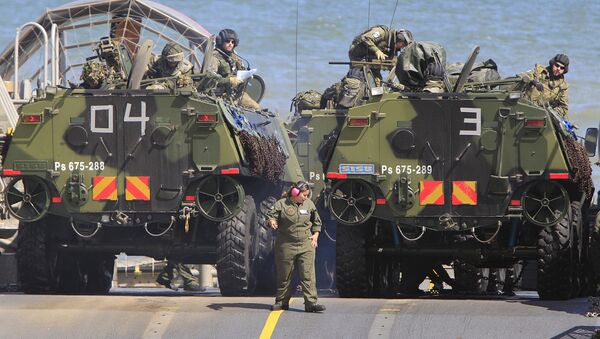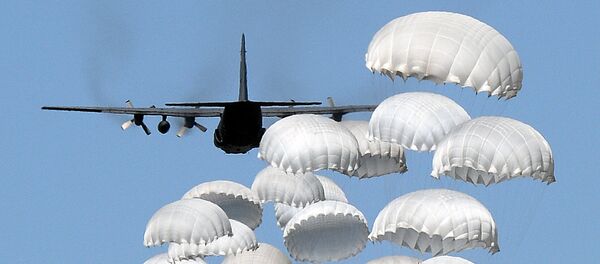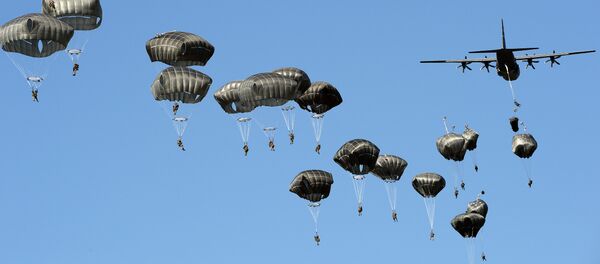Mary Dejevsky, a well-respected commentator on Russia, called Steinmeier's remarks "an extraordinary demarche" from the tough stance that the United States and some of its allies adopted towards Moscow in the wake of Crimea's democratic reunification with Russia.
And it was not just Steinmeier's "demarche," but Berlin's. "Steinmeier is a cautious politician, and it is unlikely that he uttered those words without at least tacit support from Chancellor Angela Merkel," she asserted.
If so, this could point to a rift between NATO members on how to deal with Russia, the writer added in an opinion piece for the Guardian. For her, it is a choice between "punitive isolation" and engagement. Evidently, German leadership has had enough of the former and wants to focus on the latter.
"In breaking ranks as he did, Steinmeier has exposed the awkward truth. Isolation has not produced a more cooperative Russia, only a less stable Europe. It is time to try another way," Dejevsky noted.
The bloc's strategy has been championed by hardliners in the US, as well as the Eastern European states and the Baltics. For its part, Germany has cautiously called for a more pragmatic approach to handling Moscow.
Duma Foreign Affairs Committee Alexei Pushkov referred to Steinmeier's comments as "a voice of reason" that cut through the "veil of threats and hysteria."
Штайнмайер выступил пр."конька"Столтенберга — ставки на устрашение России. Так сквозь занавес угроз и истерии слышны отдельные голоса разума
— Алексей Пушков (@Alexey_Pushkov) 18 июня 2016 г.
German historian and political analyst Alexander Rahr, who serves as Research Director of the German-Russian Forum, said that Steinmeier's remarks came at a time when Western Europe is changing its attitude toward Russia.
Germany is not the only country that is trying to improve its relations with Russia, the expert told the Vzglyad newspaper. France and Italy are also on this list, while Eastern Europe, particularly Poland, the Baltic states and Sweden have adopted a tough stance towards Moscow.
"Frankly speaking, the rhetoric of some Eastern European countries [with regard to Russia] is annoying," Rahr said.
Some were critical of Steinmeier. Berthold Kohler, an editor at the Frankfurter Allgemeine Zeitung, asked whether it was Putin's birthday and if the Russian president had received his "present" yet.
Last week, Frank-Walter Steinmeier told Bild am Sonntag that the West should not "inflame the situation with loud saber-rattling and warmongering."
"Anyone who thinks that symbolic tank parades on the bloc's Eastern border create more security is mistaken," Germany's top diplomat noted. "We are well-advised to refrain from creating pretexts to renew an old confrontation," he said, adding that it would be "fatal to search only for military solutions and a policy of deterrence."



